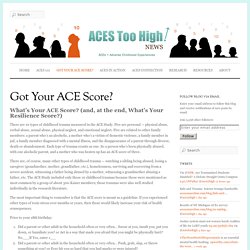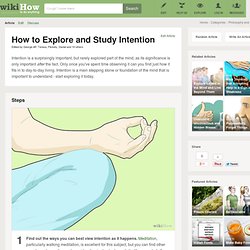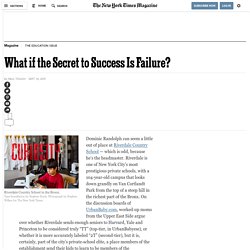

University - Exercise reorganizes the brain to be more resilient to stress. Posted July 3, 2013; 02:30 p.m. by Morgan Kelly, Office of Communications Physical activity reorganizes the brain so that its response to stress is reduced and anxiety is less likely to interfere with normal brain function, according to a research team based at Princeton University.

The researchers report in the Journal of Neuroscience that when mice allowed to exercise regularly experienced a stressor — exposure to cold water — their brains exhibited a spike in the activity of neurons that shut off excitement in the ventral hippocampus, a brain region shown to regulate anxiety. These findings potentially resolve a discrepancy in research related to the effect of exercise on the brain — namely that exercise reduces anxiety while also promoting the growth of new neurons in the ventral hippocampus.
Writing - for health and happiness? 17 August 2013Last updated at 01:11 GMT By Cathy Edwards Health Check, BBC World Service There are risks and benefits to sharing your emotions online Decades of research have shown that writing down your emotions has concrete health benefits - even helping wounds heal.

Paying attention is a skill: Schools need to teach it. Photo by Shutterstock.

Jane Ellen Stevens: The Adverse Childhood Experiences Study. "Adverse childhood experiences" has become a buzzword in social services, public health, education, juvenile justice, mental health, pediatrics, criminal justice, medical research and even business.

The ACE Study - the CDC's Adverse Childhood Experiences Study -- has recently been featured in the New York Times, This American Life, and Salon.com. Many people say that just as you should what your cholesterol score is, so you should know your ACE score. Got Your ACE Score? « ACEs Too High. There are 10 types of childhood trauma measured in the ACE Study.

Five are personal — physical abuse, verbal abuse, sexual abuse, physical neglect, and emotional neglect. Five are related to other family members: a parent who’s an alcoholic, a mother who’s a victim of domestic violence, a family member in jail, a family member diagnosed with a mental illness, and the disappearance of a parent through divorce, death or abandonment.
Learned Optimism Test. Learned Optimism: How to Change Your Mind and Your Life (9781400078394): Martin E. P. Seligman. Applying Learned Optimism (Schulman) Brain Article.pdf. SuperBetter. Headspace meditation podcasts. Introduction to Meditation. How to Explore and Study Intention: 10 steps. Edit Article.

Go Easy on Yourself, a New Wave of Research Urges. Stuart Bradford Do you treat yourself as well as you treat your friends and family?

That simple question is the basis for a burgeoning new area of psychological research called self-compassion — how kindly people view themselves. People who find it easy to be supportive and understanding to others, it turns out, often score surprisingly low on self-compassion tests, berating themselves for perceived failures like being overweight or not exercising. Self-compassion - A Healthier Way of Relating to Yourself. Computer Gaming Revolutionary, Author of Reality is Broken. Jane McGonigal: Truths & Myths in Gaming. Jane McGonigal: The game that can give you 10 extra years of life. Back to School. Ira talks with Paul Tough, author of the new book How Children Succeed, about the traditional ways we measure ability and intelligence in American schools.

They talk about the focus on cognitive abilities, conventional "book smarts. " They discuss the current emphasis on these kinds of skills in American education, and the emphasis standardized testing, and then turn our attention to a growing body of research that suggests we may be on the verge of a new approach to some of the biggest challenges facing American schools today. Paul Tough. Saturday, August 25th, 2012 Bill Moyers on Times Magazine Article Bill Moyers comments on my Times Magazine article on Roseland, poverty, and Barack Obama.

More here. Sunday, August 19th, 2012 Obama/Poverty Reaction Some reactions to my article in the Times Magazine on President Obama, Roseland, and poverty: What if the Secret to Success Is Failure? Over the course of the next year and a half, Duckworth worked with Levin and Randolph to turn the list of seven strengths into a two-page evaluation, a questionnaire that could be completed by teachers or parents, or by students themselves.

‘How Children Succeed,’ by Paul Tough. How Children Succeed book excerpt: What the most boring test in the world tells us about motivation and IQ. Hard Evidence on Soft Skills (NBER Heckman & Kautz) What's the 'Rate of Return' on Social Skills? - James Heckman. Economics.mit.edu/files/569. Professor James J. Heckman. Professor James J. Heckman. Teaching the New Basic Skills. Teaching the New Basic Skills Book suggest ways that schools can help students to meet demands of new economic environment By Bunmi Fatoye-Matory Special to the Gazette In 1979, a 30-year-old man with a high school diploma earned a yearly average of $27,000 (in 1993 dollars) but by 1993 that same man with the same diploma earned $20,000.
This decline in wages becomes even more significant when you learn that in 1993 half of all 30-year-old men had not gone beyond high school. The problem is not that the quality of American schools is declining, according to Richard Murnane, education professor at the Graduate School of Education, and Frank Levy, professor of urban economics at M.I.T., authors of the new book, Teaching the New Basic Skills: Principles for Educating Children to Thrive in a Changing Economy. The New Basic Skills. Levy, F. and Murnane, R.J.: The New Division of Labor: How Computers Are Creating the Next Job Market. As the current recession ends, many workers will not be returning to the jobs they once held--those jobs are gone. In The New Division of Labor, Frank Levy and Richard Murnane show how computers are changing the employment landscape and how the right kinds of education can ease the transition to the new job market.
Why Can Some Kids Handle Pressure While Others Fall Apart? Beyond Critical Thinking: Can We Teach Commitment? Critical thinking has so thoroughly colonized our idea of education that we tend to think it’s the only kind of thinking. Tests try to measure it, and ritzy private schools all claim to teach it. Critical thinking–analysis, not mere acceptance–is a skill we can all learn. The Principle of the Hiding Hand. The Fine Art of Resilience: Lessons from Stanley Meltzoff. Can entrepreneurs learn from artists? Acts of Witness » Learning to Look for Resilience. Challenge Success. Carol Dweck, "Mindsets", Impostor Syndrome, Praise, and Early-Career Blues. Video shows how Walla Walla, WA, high school integrates resilience into school discipline « ACEs Too High. How I Failed, Failed, and Finally Succeeded at Learning How to Code - James Somers. The programming website Project Euler provides a plan for how to learn anything in fun, discrete steps. Dan Pink on the surprising science of motivation.
Other People's Children: Cultural Conflict in the Classroom - Lisa D. Delpit. An Interview With Lisa Delpit on Educating 'Other People's Children' Share. Alfie Kohn on Grit and Its Misuses. What Resilience Is Not: Uses and Abuses. How Not to Teach Values. February 1997. Teaching Non-Cognitive Skills Blames the Victim - Teaching Ahead: A Roundtable. The Benefits of Character Education - Jessica Lahey. Character education. Core Virtues. See Schools of Character. Further Reading and Links on Issues in Character Education. Kent Place School ~ Conversation Norms. You're Distracted. This Professor Can Help. - Technology. Conquering the To-Do List. Character Report Card. When and Why Incentives (Don't) Work to Modify Behavior. How Do I Prepare My Students for the Real World? Can we interrupt social conditioning?
Test Your Mindset. Measuring mindset in my classes. Baronreading / Status of the Class - Period 1. Can Emotional Intelligence Be Taught?